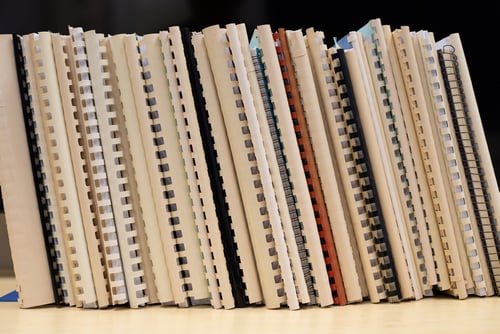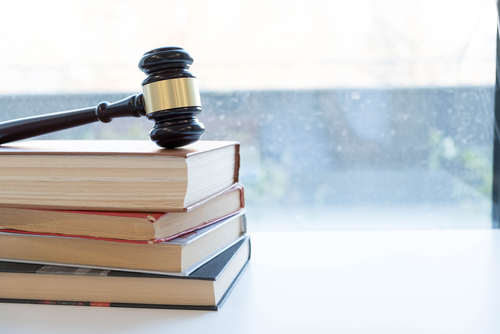Though taxes aren't due until mid-April, many people do their taxes early. The first quarter of the new year is a haven for identity thieves because people do not think of shredding old tax documents or copies of documents that have personal information on them, including your social security number. Reduce your chances of becoming an identity theft victim by properly shredding important documents, including tax documents.
Documents That Must Be Shredded
The obvious documents that should be shredded have your social security number on them. Even if the documents have the last four only, they should be shredded. Other documents that must be shredded include:
-
Anything that comes in the mail with your name on it, even junk mail, if it doesn't need to be kept. There's no sense in confirming your address with offers that might signify that you have a good credit score or other well-off financially.
-
Prescription bottles, especially those for narcotics. Thieves could get prescriptions in your name by forging a doctor's signature. Since the government keeps track of narcotics and opiates, this could cause you to be denied medication that you need.
-
CDs, hard drives and other electronic storage devices with data on them.
-
Any supporting tax documents or other tax documents that you no longer need to keep.
-
Bank statements, investment statements, canceled checks, paystubs and other financial documents should also be shredded, even if they have a partial account number on them. Don't forget anything that you might have printed out from online banking sites and payment companies such as PayPal.
-
Licenses and credit cards should also be shredded when they expire.
Documents That Should Be Saved or Shredded
These documents should be kept for two years, whether in their original paper form or in electronic form. Shred them when you throw them out. If you scan documents for further reference, throw these documents out as soon as you scan them:
-
ATM receipts
-
Utility bills
-
Credit card statements
-
Insurance policies
-
Credit card receipts that show even a portion of your credit card number
Documents that are related to your home should be kept until you sell the home or a year after you sell the home, depending on the document. This includes any mortgage applications, copies of mortgages, notes and deeds and insurance documents for the house.
Hardware
Even if you don't save important documents to computers, tablets or phones, the hard drives should be shredded anyway. If you don't have a special shredder for hardware, wait until a local business hosts a shredding day with Carolina Shred. We will be able to shred hard drives, CDs and other electronic storage items.
Get Rid of the Paper
Many banks, credit card companies, insurance companies and others offer electronic statements only. If at all possible, reduce the chance that someone will get a hold of your physical documents by opting in for electronic mailing. If you do this, never click on an email that says “Your statement is ready.” Instead, go directly to the company's URL and access the statement through the secure server.
Shred Days
For the physical documents you do need to keep, or for those who prefer not to receive their documents electronically, be sure to save them for the shredder. You could purchase a cross cut shredder or you could attend one of Carolina Shred's shred days. Businesses partner with us to set up in their parking lots. We park there all day or for a few days, depending on what the business requests, and will shred documents and computer storage items including hard drives and CDs.
Businesses
Contact Carolina Shed to partner with us on a shred day in the parking lot of your business. Not only will you have a chance to shred all documents that no longer need to be kept, but you will also be providing an inexpensive service for the people in your community. You may also contact us to set up a shred audit for your office.
 Carolina Shred's Back to Office Checklist
Carolina Shred's Back to Office Checklist
 Document Disposal for Law Firms
Document Disposal for Law Firms

Comments